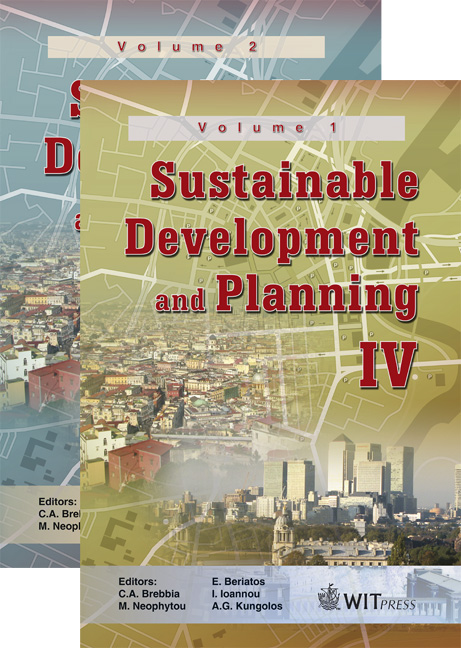Assessment Of Sustainability In Urban Planning Of A Coastal City: The City Of Coronel, Southern Chile
Price
Free (open access)
Transaction
Volume
120
Pages
11
Page Range
665 - 675
Published
2009
Size
731 kb
Paper DOI
10.2495/SDP090622
Copyright
WIT Press
Author(s)
B. Suazo, E. Jaque, C. Rojas & R. Utz
Abstract
Population increases in the coastal area in the Bío Bío region (Chile) have transformed the urban landscape, creating the need for new urban areas for residential land use. This expansion has resulted in the use of locations vulnerable to natural hazards, and outpacing urban planning instruments. The city of Coronel is a typical urban space located in this coastal zone. Coronel’s Urban Planning was recently updated in 2003, and the present study’s objective is to evaluate its environmental sustainability using a system of indicators applicable to the proposed land coverage model established in the 2003 urban planning instrument. Urban sustainability indicators are obtained using Geographic Information System (GIS) tools. The indicators are based on three territorial components: the distribution of land use and physical structure, land coverage and environmental quality. The data is gathered in the proposed urban land zonings. The method applies sustainability development concepts in data modeling, spatial analysis and geoprocessing in GIS. The results characterize the proposed urban model’s sustainability. Keywords: sustainability indicator, urban planning, GIS. 1 Introduction Urban planning is a public sector tool of increasing importance used to achieve competitiveness and habitability in Chilean cities. Considering that one of the principal objectives of urban planning is to orient a territory’s development
Keywords
sustainability indicator, urban planning, GIS.





